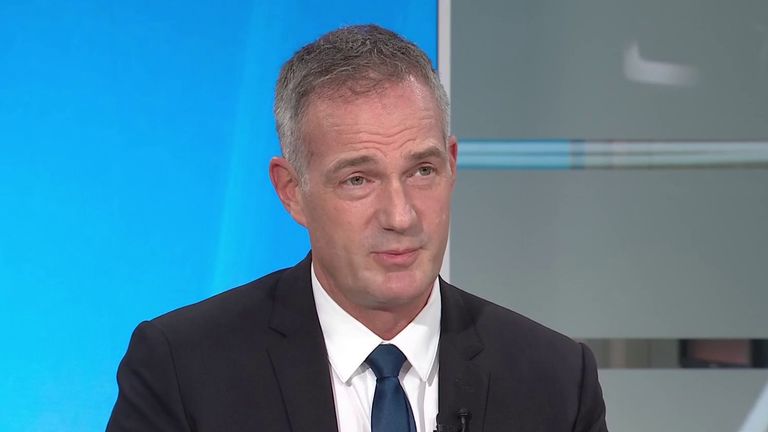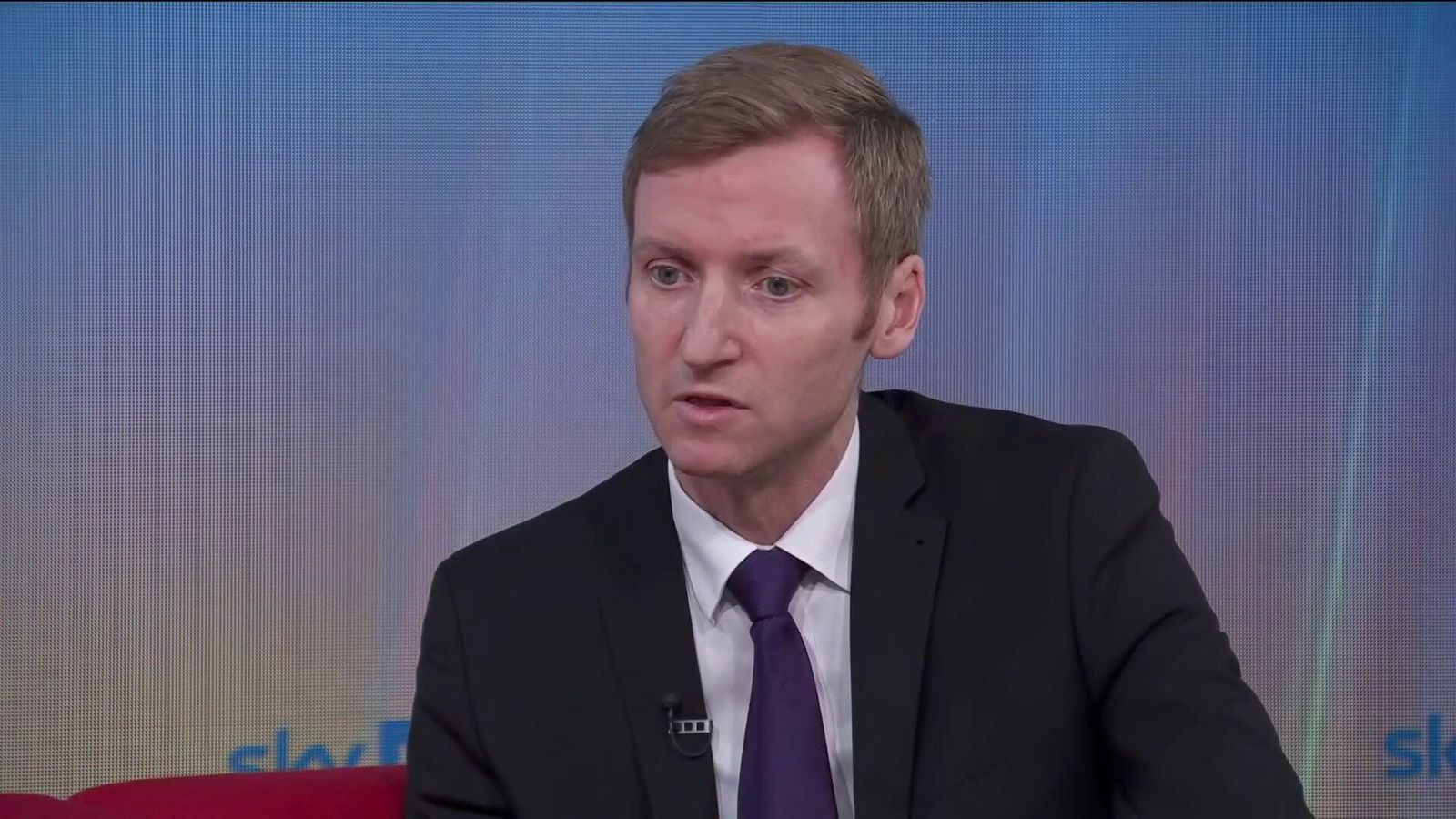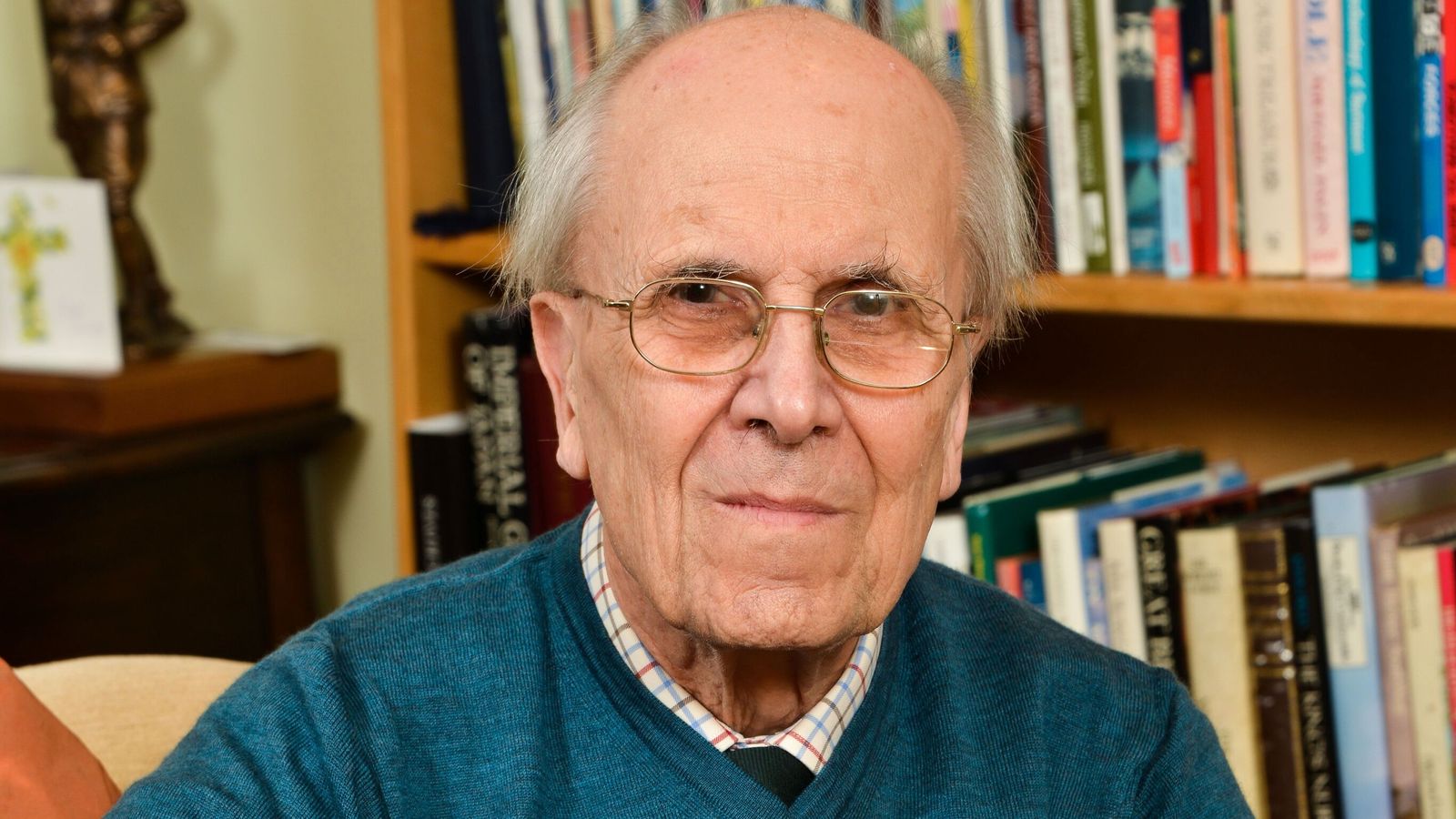
The government has defended plans to prioritise social housing for British citizens and those with “close connections” to the UK as “fair”, despite charities criticising it as divisive.
Housing minister Lee Rowley said social housing was a “finite resource” and the government wanted to “make sure that we use it in a way which works”.
Politics latest: Power-sharing set to return to Northern Ireland ‘within days’
Under the plans, applicants for social housing would have to demonstrate a connection to the UK for at least 10 years and their local area for at least two years, in what ministers are describing as an “overhaul” of the system.
People with unspent criminal convictions or certain civil sanctions for anti-social behaviour could also be banned from social housing for up to five years, while those who “repeatedly make their neighbours’ lives hell” through anti-social behaviour also face eviction under a “three strikes and you’re out” policy.
Speaking to Sky News, Mr Rowley said housing was “always going to be a finite resource”.
“We want to make sure that we use it in a way which works, which supports the people who need it but is also fair.”
Asked what would happen to people who were either not British or had not lived here for a long time, Mr Rowley said they could rely on the private rented sector, while those who are homeless would be helped by the government into temporary accommodation.
Pressed on whether the plans were “fair”, the minister replied: “Of course it’s fair – it’s fair that people who’ve been here for a long time who have paid into the system get the access to social housing, which is a precious and finite resource.”
Charities have criticised the announcement, with Shelter branding it “scapegoating at its worst”.
“It is unnecessary, unenforceable and unjust,” it said. “If the government genuinely wants to tackle the housing emergency there’s a clear solution: we need more social homes.”
The charity went on to say there were already “stringent” rules that meant only UK citizens or those with settled status could access homes for social rent.
“This is nothing but blaming a group of people for a housing emergency they did not create,” it said.
Labour frontbencher Peter Kyle said measures were introduced under the last Labour government that ensured that people who came to the UK had to work for a certain period of time before they could access housing benefit.
“It is right that people who are in areas where there is a real acute challenge with housing know that housing should go to people who are already born and raised in certain communities because if they believe people are coming in, it can damage the fabric of that community,” he said.
“But let’s just be clear about what the real challenge is here – we’re not building enough houses.
“With a Labour government, if we get one in the election this year, we will build a million houses every year, because we need to make sure we get back to the fact that we are backing the builders and not always being dragged back by the blockers in the Conservative Party.”
Read more on Sky News:
Mother forced to live in a damp ridden home was scared she was ‘going to die’
The housing battle – which party will get Britain building?
The policy, which was announced last night, could also see terrorists with certain convictions blocked from living in social homes while new social tenants on high incomes may also no longer qualify.
The salary threshold is yet to be determined, so existing tenants would not be affected.
The government has said it wants to bring in the reforms “as soon as possible” but is now carrying out an eight-week consultation that will run until 26 March.
It has suggested some of the measures may be implemented by secondary legislation which would mean they do not require a vote in parliament.











